Wow. Where do I begin?
The inaugural MarTech conference that took place last week was, at least for me, nothing short of an extraordinary experience. I am so immensely grateful to all of the speakers, sponsors, producers, advisors, and — above all — attendees who came together for two special days to celebrate the epic collision of the two worlds of marketing and technology. Thank you!
But, wow, my head is still spinning.
From the moment our first speaker — Mayur Gupta, the global head of marketing technology & innovation at Kimberly-Clark — hit the stage on Tuesday morning through to the reflections from our last, very special guest — Dharmesh Shah, co-founder and CTO of HubSpot — on Wednesday late afternoon, I felt like I was quite literally “drinking from the firehose.”
(The animated gif is a tribute to Travis Wright, whose To Build or Buy a Marketing Cloud? talk was illuminating, unafraid to be controversial, and flat-out hilarious. SlideShare alone doesn’t do it justice.)
And it wasn’t just the speakers on stage. So many of the conversations I had with attendees — hearing their stories of fusing marketing and IT within their own companies — were so rich with insights and hard-won wisdom about the challenges and opportunities of this emerging discipline that I was in a constant state of enthrallment.
It will take me months of posts here to cover even half of the ideas that were shared within that intense 48 hours. And I fully intend to do just that. But for now, I wanted to share just a few immediate reflections on the conference overall.
#1. A fascinating convergence of marketers and technologists
A common question about MarTech is, “Who are the attendees?”
It’s a hard question to answer, because at least by titles on business cards, it was an incredibly diverse audience. I could answer that it’s “people are who are passionate about the intersection of marketing and technology” — which is true, but that’s a bit of a cop out.
The more meaningful answer is that it’s the convergence of three groups:
1. Technologists working in the service of marketing. They come from backgrounds such as IT, web development, software engineering, and (growth) hacking. Some still report on paper into the IT department, but most of them now seem officially rooted in marketing. Regardless of org chart boxes and lines, they spend their days designing and managing a wide range of back-office and customer-facing marketing software and connecting it to marketing strategy and operations.
2. Digital marketers who are comfortable embracing the technology. They typically have more experience across a broader spectrum of marketing management and have been champions of social media marketing, content marketing, inbound marketing, etc. Some started their careers in a technical field, but even those who didn’t now share an affinity for applying software to innovate their marketing programs.
3. Marketing technology developers, agencies, and related service providers. From both entrepreneurial start-ups and major “marketing cloud” providers alike, these are the people creating the marketing technology landscape. They’re the agencies who apply marketing technology in their own work — including “creative technologists” — and who are increasingly interfacing more deeply into the marketing technology stacks of their clients. They’re the systems integrators, management consultants, research analysts, etc., whose businesses are all affected by the tech-powered transformation of marketing underway.
These audience segments may have originated from different corners of the professional world, but they’ve come to the same intersection. Paul Roetzer really captured the gestalt of these “new breed of hybrid marketers” in his talk that addressed gaps in strategy, talent, and technology (based on his new book, The Marketing Performance Blueprint).
#2. An audience who appreciates code, culture, and customers
When Christopher Penn — who gave a fantastic talk on algorithmic thinking for marketers — asked how many people in the audience had done some kind of programming at some point in their lives, well over half the audience enthusiastically raised their hands.
I think he and I both felt a sense of surprise. This is a marketing conference, right?
Of course, knowing the profile of the attendees, that response shouldn’t really have been surprising to me. But it felt surprising, because Christopher’s session had followed talks earlier that day from Sheryl Pattek on customer-centric marketing, Jason Heller on organizational management, Sheldon Monteiro on the design of a progressive global executive training program, and Erik Brynjolfsson on the macroeconomic effects of The Second Machine Age. All of which got an enthusiastic response.
This was a clearly an audience that was deeply interested in marketing leadership — yet they were also comfortable with the concepts of code. My impression is that even attendees who had never coded anything were riveted by Christopher’s presentation and immediately saw the relevance of algorithmic thinking to their work.
There’s something profound about that.
Some might be tempted to dismiss this as “unicorns” — regular people would never be interested in such a divergent set of topics. But I believe this beautifully reflects how these previously unrelated concepts are converging, quite rapidly, in our world today. And while I do believe the audience at this first MarTech skewed heavily towards innovators and early adopters, I don’t think they’re one-offs.
I bet we’re going to see a lot more people blossoming at this nexus in the years ahead.
#3. Agility is the key to thriving in this complex, changing world
Jascha Kaykas-Wolff gave a wonderful presentation on agile marketing — and announced the release of a new book he’d written, Growing Up Fast: How New Agile Practices Can Move Marketing and Innovation Past the Old Business Stalemates, which I can’t wait to read.
But while Jascha’s session was the only one with “agile” officially in its title, the theme of agility was pervasive throughout many of the sessions at MarTech — where technology has enabled and mandated more adaptive management approaches and, more fundamentally, a shift in corporate culture:
- Mayur Gupta shed light how marketing technology is becoming more about innovation than operations — and highlighted the digital “labs” that so many brands were now launching. He emphasized how these efforts require a shift in mindset and culture, with his first of seven points being “don’t kill the butterfly” (i.e., provide an environment for fragile new ideas to grow and multiply).
- Sean Ellis gave an excellent talk on growth hacking, a term that he had coined, which he characterized as “experiment-driven marketing” and championing the development of a “growth culture.”
- Laura McLellan, presenting on how marketing technologists symbolized marketing’s changing role, described a model for how Gartner is seeing large companies deal with the dual — and often competing — challenges of agility and scale: by explicitly creating “bimodal” organizations, which have parts that operate around scale and stability and parts that facilitate speed and innovation.
Even the panel discussion I had with Adobe, IBM, and Marketo about ISV ecosystems around their platforms was, at its core, an acknowledgement that the mind-blowing pace of change in this industry requires agility to be baked into their strategies too.
#4. An independent marketing technology conference for ISVs
Speaking of platforms and bimodal structures, what I heard and saw at MarTech further reinforced my belief that, in the years ahead, we’re going to see both (a) consolidation in core marketing platforms — what Dharmesh Shah characterized as an eventual “oligopoly” — and (b) diversification in the ISV products that are offered on top of these platforms.
When I asked the participants on my ISV ecosystem panel to make an approximation of how many third-party developers would be represented in their respective platforms two years from now, they answered 500 (Adobe), 500 (IBM), and 800 (Marketo). While they cautioned that quality is more important than quantity, their estimates clearly predict a significant growth in each of their ISV communities.
Throughout our discussion, they repeatedly emphasized that they believed an open platform model was key to being able to keep pace with all the innovation we’re seeing in marketing technology, which shows no sign of slowing down. They want to not merely enable, but actively encourage third-party developers.
“We can’t do it all ourselves” was a recurring refrain.
While the platforms themselves get most of the headlines in their battle for a seat in the resulting oligopoly — they are the ones who have collectively spent over $10 billion on acquisitions in this space — I think the far more interesting story will be with the ISV community.
Frankly, this platform market doesn’t have a historical precedent in the software industry. With desktop and mobile operating systems, the platforms came first, and then the ISVs followed — which gave the platforms almost dictatorial power. But in martech, we already had over 1,000 “ISVs” before platforms even started to materialize as such. A whole category of “marketing middleware” — such as tag management, cloud connectors, and customer data platforms — had already grown up in this vacuum. And with those two forces alone, the power relationship between platforms and ISVs in marketing technology is very different.
In this environment, I believe there’s a place for an independent marketing technology conference that puts ISVs on a more balanced footing with the platforms — a desire I’ve heard echoed by both ISVs and marketers alike. The major events hosted by Adobe, HubSpot, Oracle, Salesforce, etc., are amazing in their own right, but they are inherently filtered through the lens of their own agendas. My goal is for MarTech to be such neutral ground, the “Switzerland of marketing technology.”
#5. This intersection is the future of marketing
There was an electrifying energy in the air at MarTech. I don’t take credit for it — on the contrary, I feel as fortunate as anyone to have been touched by it. But as so many of the attendees I talked with said, it was the sense that this is the future of marketing.
That’s not to say that marketing is becoming about the technology. No, everyone’s quite clear that it’s about the customer — perhaps more than ever.
(Jascha made the very point that one of the reasons we need to rethink much of marketing management is because the “customer” has gone from being an abstract persona on the wall to being, well, actual, real customers.)
Rather, it’s the recognition that technology is dramatically changing what marketing can do. These are not incremental improvements in efficiency or effectiveness. These are cataclysmic disruptive innovations of the kind that would make Clay Christensen do a broad-grinned jig. As Mayur said, the technology isn’t just enabling these disruptions — it’s creatively inspiring them.
It’s much bigger than the “marketing” label of the past two centuries.
And, according to Erik Brynjolfsson, we’re only going to see this accelerate.
The marketing technologists who understand this spectrum of technology and — like a sculptor who intuitively uses clay — can shape it into new kinds of business services and remarkable customer experiences will be the kingmakers and queenmakers of modern marketing.
It was a real thrill to meet so many of them — so many of you — in person last week.
The photo at the top of this article was taken by MarTech attendee Jacob Varghese and used with his kind permission — thank you!
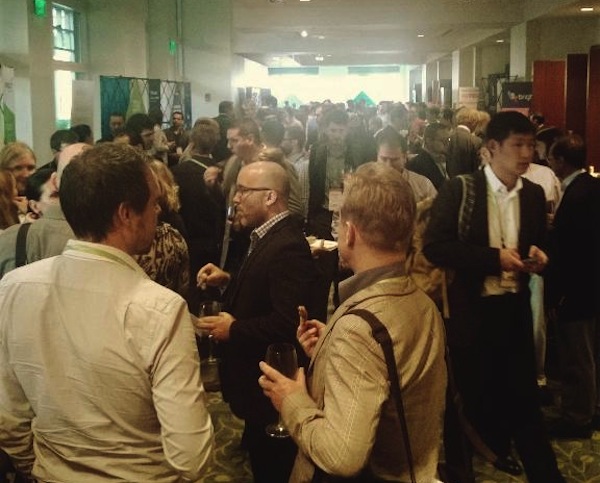

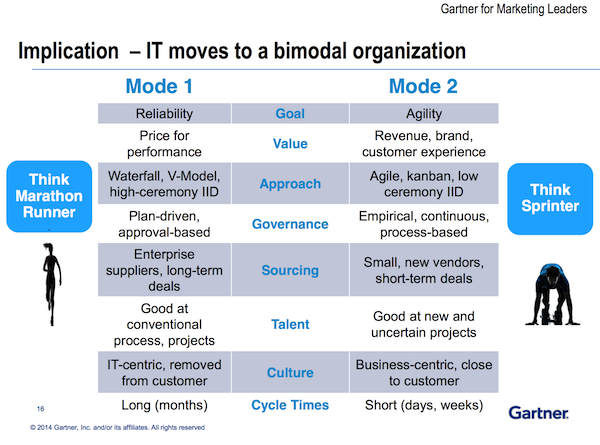
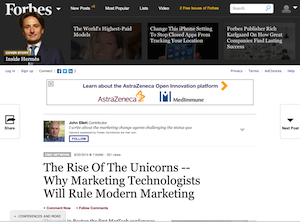
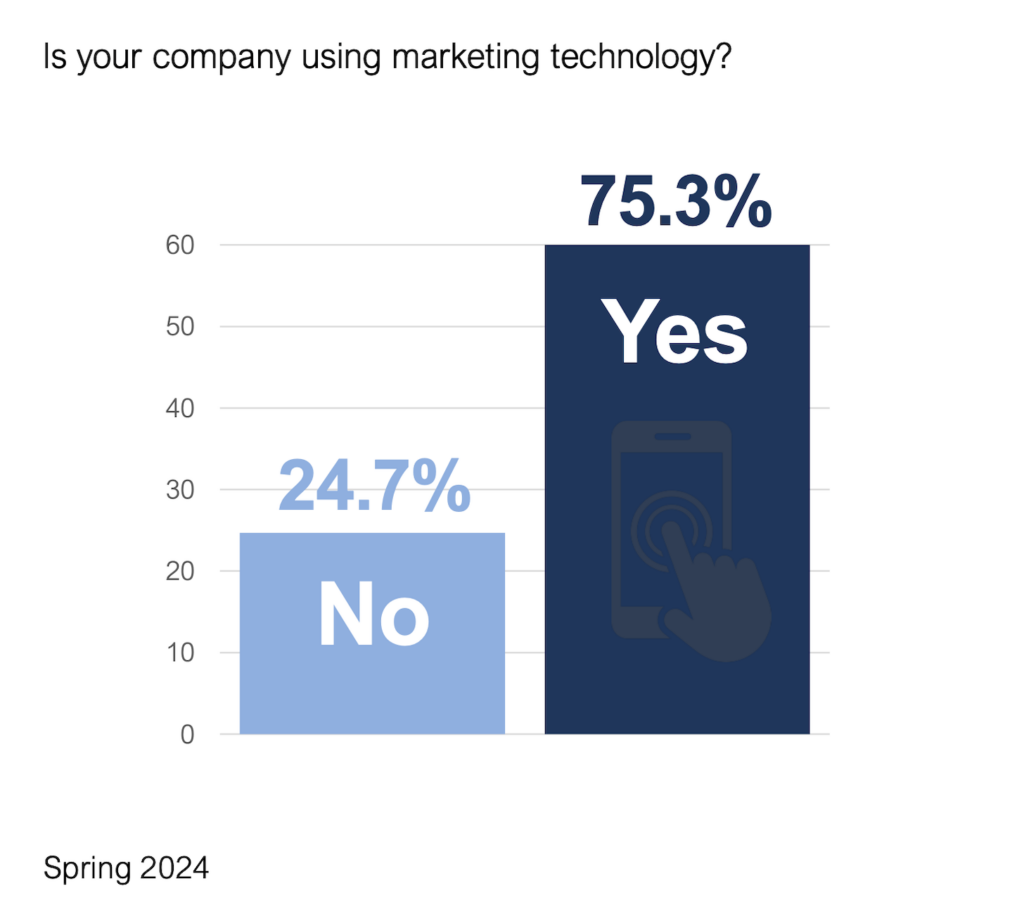
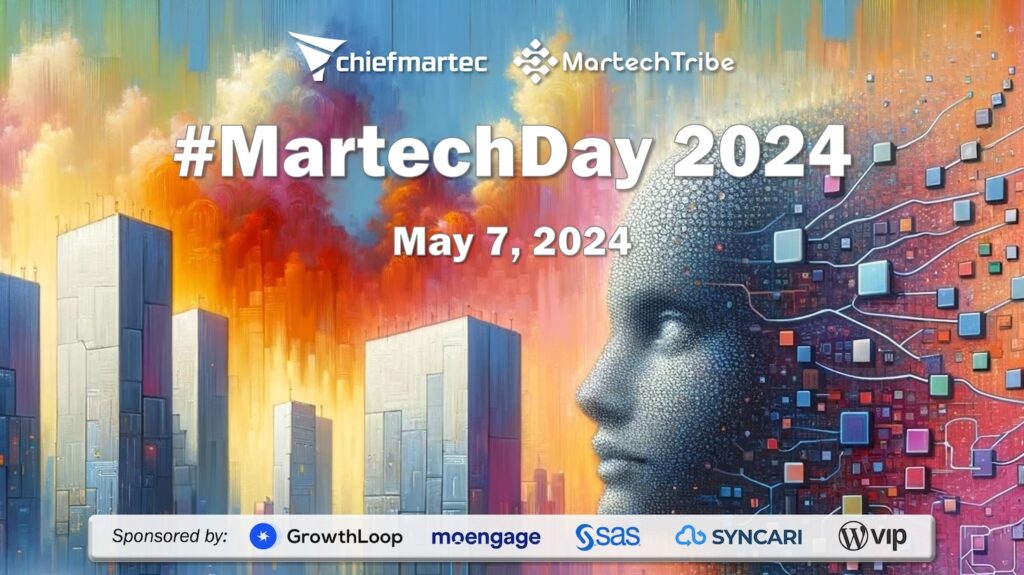
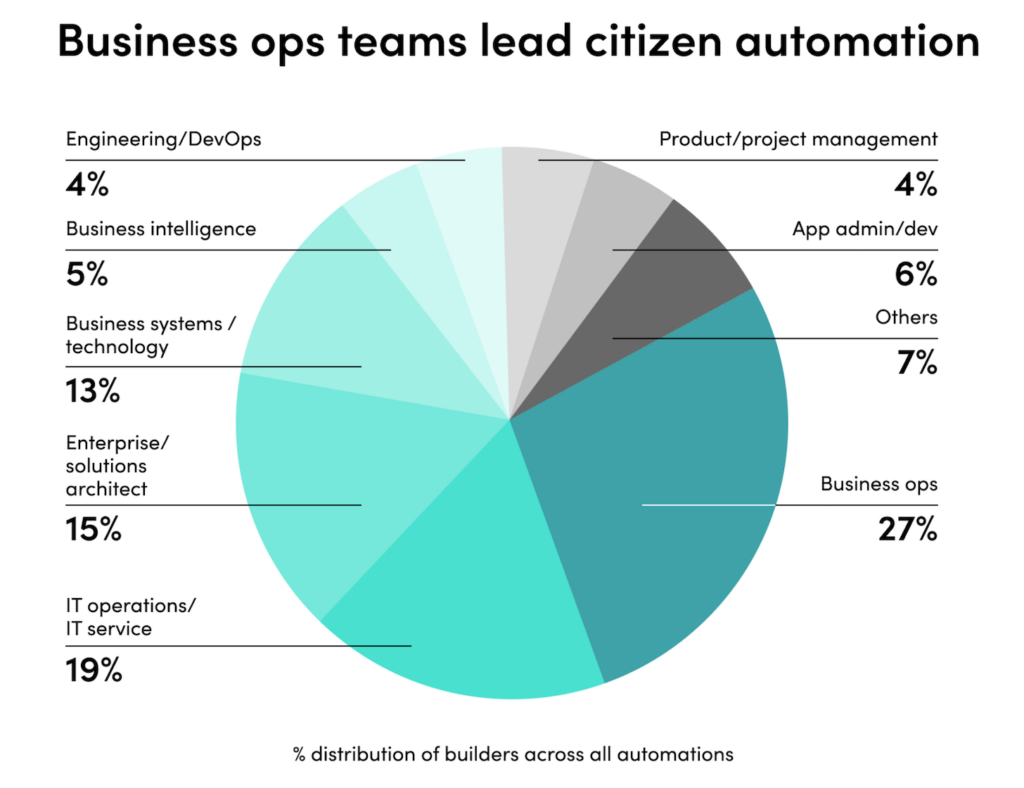
Congratulations Scott. Everything about the event was a wonderful success. Thanks for being a passionate champion of the marketing and technology intersection.
Jascha — thank you so much for making the journey to present at this first MarTech. I deeply appreciate it. Your talk was terrific, and I’m really looking forward to reading “Growing Up Fast.”
Well done Scott, Would have loved to be there. perhaps next year.
Allen
Thanks, Allen! At least with San Francisco next spring, we’ll be getting a little closer to you!
One of the best conferences I visited in years. Great speakers, great setup! Thanks!
Thank you, Martijn — really happy that you enjoyed it!
Scott, congratulations. You should be very proud of what you saw so many years ago. Keep up the great work.
A great conference – really enjoyed it and the speakers were excellent. Are attendees going to receive access to videos of the talks? (Already have the slides)
“Switzerland of marketing technology.” I love this phrase! Hope I can attend one day to MarTech!